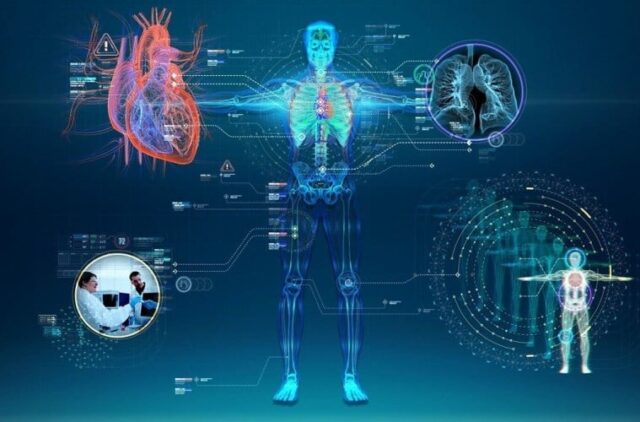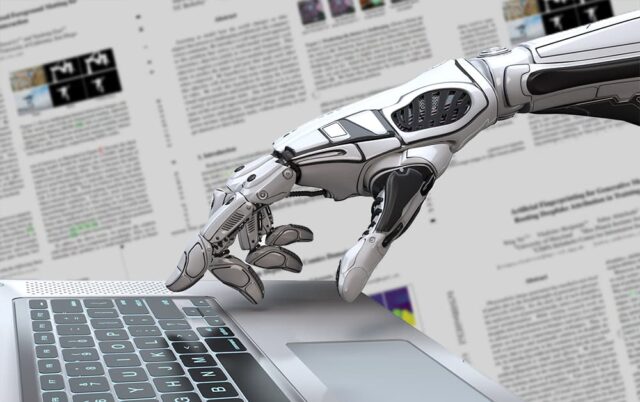
From understanding the origins of the universe to finding cures for diseases, AI is being used in scientific research in a variety of ways. From developing new treatments to predicting natural disasters, AI has the ability to change the way we understand the world around us. So if you’re curious about how AI is being used in scientific research, read on!
Artificial intelligence (AI) is used in scientific research to perform tasks that would otherwise be difficult or impossible for humans to do, such as analyzing data and identifying patterns. AI can also help researchers avoid making the same mistakes multiple times.
Some common uses of AI in scientific research include:
1. Processing large amounts of data quickly and accurately
2. Identifying patterns and trends in data
3. Generating new ideas based on existing data
Benefits and Risks

There are many benefits to using artificial intelligence in scientific research. For example, it can speed up the process of data collection and analysis, which can lead to more accurate and up-to-date results. Additionally, artificial intelligence can help researchers identify patterns and trends in data that they would otherwise miss.
However, there are also risks associated with using AI in scientific research. For example, it could be used to automate tasks that should be done manually, which could lead to decreased quality and accuracy of data. Furthermore, if the wrong parameters are input into an AI system, it could result in harmful or unintended consequences.
Can it make scientific discoveries?
One study used machine learning algorithms to identify new molecular structures from experimental data. In this case, the machine learning algorithm was able to find structures that had never been observed before. Similarly, artificial intelligence has been used to develop models that predict the outcomes of experiments. This type of technology is often referred to as “big data” because it requires large amounts of data to train the model correctly.
Overall, using artificial intelligence in research has many benefits for scientists and the overall process of conducting research. By automating certain tasks and providing insights that were not possible before, AI has helped make research much more efficient and accurate.
Can AI write a scientific paper?

Some claim that artificial intelligence is already proficient in this task, while others believe that it is still some way off. However, despite the skepticism surrounding AI’s ability to write papers at a high level, there have been some notable examples of AI writing scientific papers.
For example, Google’s AlphaGo artificial intelligence was able to beat world champion Go player Lee Sedol in a five-game match. This was an impressive achievement given that Sedol had previously won several professional tournaments and was considered one of the best players in the world.
The success of AlphaGo highlights just how far AI has come in recent years. In fact, many experts believe that AI has the potential to become even more skilled at writing scientific papers. This is because computers are better at focusing on specific tasks and can produce more accurate and consistent results than humans.
Researchers directing an AI to write an academic paper discovered that the it writes the paper faster than a human and can edit itself. There’s no need to get a research assistant or let the team know that little detail because they already know!
How is an AI trained to read scientific papers that could predict future discoveries?
The ability of artificial intelligence (AI) to read and understand scientific papers is helping to fuel future discoveries. Recently, an AI was able to predict future scientific discoveries by simply extracting meaningful data from research publications. In a paper published in Nature, the AI was able to outperform humans in predicting which papers would be most influential in the field.
The key to this success lies in the way that language has a deep connection with thinking. The AI was able to identify patterns in the text that indicated which papers were likely to be influential. This allowed it to develop a predictive model that was better than those generated by human judges.
This development could have major implications for scientific research. It could allow researchers to focus their efforts on more important tasks, and it could help them make more informed decisions about which projects to pursue. It also underscores the importance of open communication within the scientific community – if researchers are aware of potential trends, they can more easily share information that may be relevant to other researchers. To find out more, check this.
What is the latest research?

In the field of artificial intelligence (AI), there is a lot of ongoing research and development in order to create more intelligent machines. However, there are also some very impressive recent advances in AI that have been made. One such advance is the creation of “butterfly bots” – fast-swimming soft robots that can reach high speeds and navigate around obstacles.
This type of robot has been developed by researchers at North Carolina State University. The butterfly bots use flexible bodies and flapping wings to move through the air. They are powered by small motors that allow them to swim quickly and efficiently.
They demonstrated some impressive capabilities. For example, they can navigate their way around complex obstacles, such as tripwires or submerged objects. In addition, they are able to accelerate quickly and maintain high speeds for prolonged periods of time, swimming 4x faster than robots have so far.
How can AI help clinical trials?

One way AI helps with clinical trials is by tracking how people are doing in the trial. This can help researchers see if the treatment is working and what changes people should make to continue taking it. AI can also help researchers choose who to treat in a trial and plan which treatments to give people.
AI can also help with data collection. This means getting information about the trial from participants and other sources. AI can help gather this information quickly and accurately, which makes it easier for researchers to understand it.
Overall, using AI in clinical trials helps researchers more easily find answers to questions about whether a new treatment is safe and effective. It can also help them choose who should be treated in a trial and plan which treatments to give them.
To sum up
AI is being used in a variety of ways in scientific research, and the possibilities are vast. From predicting weather patterns to improving drug therapies, AI has the potential to change the way we conduct scientific experiments and explore our world.













